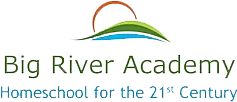Exciting News for Big River Academy!
Sign up for the newsletter at MyFunScience, and get $50 OFF your first class!
Courses
This is the full list of classes being offered at MyFunScience for the 2025/2026 School Year.
Science
- Anatomy & Physiology
- Astronomy
- Biology
- Biology
- Chemistry
- Chemistry
- Creation Science
- Earth Science
- General Science
- Health Science
- Physical Science
- Physics
- Pre-Biology
- Pre-Chemistry
- Pre-Physics
- Shocking! An Intro to Electricity
- The Age of Dinosaurs
- Young Scientist Anatomy & Physiology
- Young Scientist Botany
- Young Scientist Marine Science
- Young Scientist Zoology
Specials
English & Literature
- American Literature
- British Literature
- English I: Discovery
- English II: Foundations
- English III: Journeys
- English IV: Mastery
- Intermediate Composition
- Introduction to Literary Analysis
- WriteShop I
- WriteShop II
- Writing ER
- Writing the Research Paper
Math
History
- Biblical Archaeology
- Exploring US History
- United States History
- Windows to the World: China
- Windows to the World: US & England
- World History
Social Science
- American Government and Civics
- Biblical Archaeology
- Economics
- Informal Logic
- World Geography: Cultural and Physical
Foreign Language
- French 1 (with a Difference)
- French 2 (with a Difference)
- French 3 (with a Difference)
- German 1
- German 2
- German 3
- Spanish 1 (with a Difference)
- Spanish 2 (with a Difference)
- Spanish 3 (with a Difference)
- Spanish 4 (with a Difference)
Technology
- Computer Science: An Overview
- Graphic Design
- Information & Communications Technology
- Intro to Game Design
- Intro to Programming
- Modern Web Development (Flex-paced)
Bible
- Biblical Archaeology
- Creation Science
- Life of David
- New Testament Survey – God With Us
- Old Testament Survey – God’s Plan of Redemption
